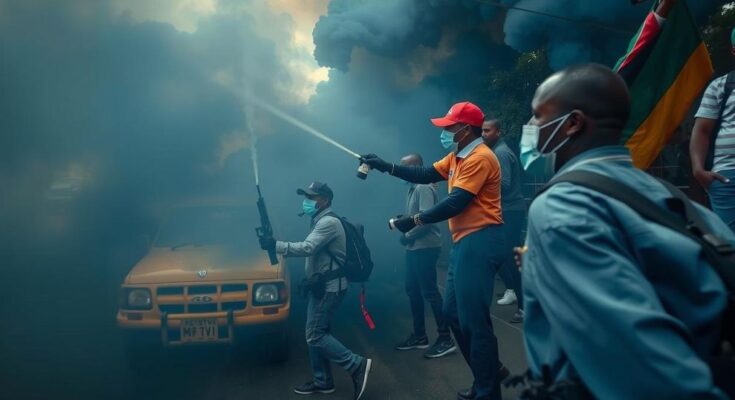Protests in Mozambique against alleged election fraud led to police deploying tear gas in Maputo, marking a significant uprising against the ruling Frelimo party. Key opposition leader Venancio Mondlane claims to be the true election victor, further asserting the need for change. An increase in violence, including multiple deaths, has prompted international concern and discussions regarding potential governmental reforms.
In Mozambique, protests erupted in the capital, Maputo, as police responded with tear gas to disperse demonstrators opposing the ruling Frelimo party’s alleged electoral fraud during the October 9 elections. This latest demonstration became the largest yet against the administration, which secured its victory, extending nearly five decades of governance. Key opposition leader Venancio Mondlane accused the government of corruption and inciting a series of protests, further escalating tensions in the region.
The political climate in Mozambique has become increasingly strained following the outcome of the recent elections, in which the Frelimo party was declared the victor. Amidst widespread allegations of electoral dishonesty, the opposition has gathered momentum in its protests. The police’s heavy-handed response reflects an attempt to quell dissent but has resulted in significant casualties, prompting concern among human rights organizations and invoking calls for accountability from international observers.
The situation in Mozambique continues to deteriorate as protests against perceived electoral malfeasance intensify. Government officials have adopted aggressive tactics to suppress public dissent, leading to reckless violence and devastating consequences for civil society. The international community’s response, including human rights appeals, may be critical in addressing these unfolding events in Mozambique.
Original Source: www.aljazeera.com




